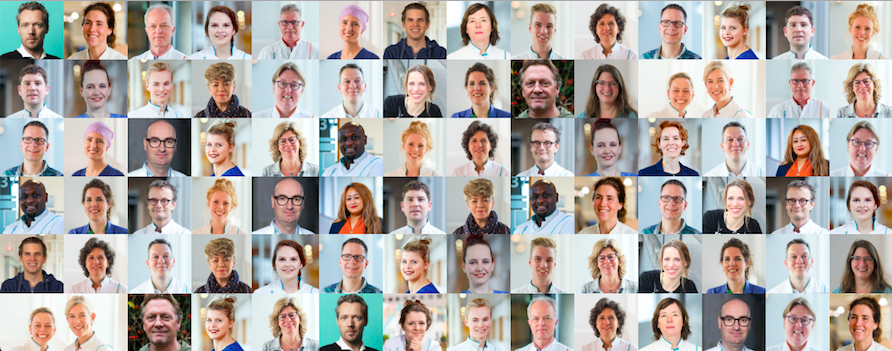PhD candidate 'Effects that the gut microbiome exerts on emotion regulation in adults with attention-deficit/hyperactivity disorder (ADHD)'
PhD candidate 'Effects that the gut microbiome exerts on emotion regulation in adults with attention-deficit/hyperactivity disorder (ADHD)'
You cannot apply for this job anymore (deadline was 15 Jan 2018).
Browse the current job offers or choose an item in the top navigation above.
Job description
We are looking for motivated scientists to work on the effects that the gut microbiome exerts on emotion regulation in adults with attention-deficit/hyperactivity disorder (ADHD). You will join the team The IMPACT2 project, part of the IMPACT consortium.
According to the DSM-5, ADHD is a condition with no intrinsic emotional component. However, literature on childhood ADHD shows that emotion regulation problems are frequent and strongly affect quality of life in terms of education, profession, social functioning.
Our project will investigate biological underpinnings of emotion regulation including neural substrates (through structural and functional MRI), genetic risk factors, and environmental influences. It will generate new insights into the influence of diet and the microbiome on neurobiological determinants of ADHD taking into account the influence of host genetics, lifestyle, socio-economic environment, and variations in food culture. For this study, we can rely on extensive, high quality infrastructure of existing datasets. In addition, new data are also collected. The project will set-up a novel approach combining brain imaging with microbiome research and is supervised by Dr. Martine Hoogman, Dr. Alejandro Arias-Vasquez, Prof. Han Brunner and Prof. Barbara Franke. The position is funded for 48 months, starting early 2018.
You will be employed at the Department of Human Genetics of the Radboudumc and have the opportunity to collaborate and interact with renowned experts in the fields of psychiatry, microbiology, neuroscience, bioinformatics and genetics. You will have plenty of opportunities to learn novel (analytical) techniques, ‘-omics’ analysis and work with cutting edge approaches. Also, you will participate in carrier-developing training opportunities and receive direct advices to develop as a successful and happy independent researcher.
Tasks and responsibilities
The applicant will:
- Become a member of the IMPACT2 hands-on team and will contribute to (neuroimaging) data collection for the IMPACT2 project;
- Become a member of the international IMPACT group taking part in (international) scientific meetings;
- Contribute to development of new knowledge on the subject of emotion regulation in ADHD;
- Perform scientific research, writes scientific publications and presents findings at meetings.
Specifications
- max. 36 hours per week
- Nijmegen View on Google Maps
Requirements
Who are we looking for?
- A highly motivated scientist with a Master’s degree in cognitive neuroscience or an adjacent field (psychological, biological, or biomedical) with affinity with psychiatry/psychiatric disorders;
- A person with strong experience on statistical analysis;
- A scientist with the ability to participate in an interdisciplinary research environment with a goal-directed attitude and good organizational skills;
- Capacity to communicate in Dutch (with patients/participants) and fluency in written and spoken English;
- A scientist with experience with neuroimaging analysis is highly recommended (matlab, linux, SPM);
- Experience with linux environment, R coding, shell scripting or other (bio)infomatics tools is a major plus;
- A person with good communication and social skills, who is willing to guide junior researchers and who enjoys working as part of a team;
- You recognise yourself in the Radboud way of working.
Conditions of employment
Fixed-term contract: 4 years.
Scale 10.0: max. € 37445 gross income per year at full employment (incl. vacation bonus and end of year payments)
Employer
Radboudumc (university medical center)
Radboudumc strives to be a leading developer of sustainable, innovative and affordable healthcare to improve the health and wellbeing of people and society in the Netherlands and beyond. This is the core of our mission: To have a significant impact on healthcare. To get a better picture of what this entails, check out our strategy film.
Our key strength is medical life-sciences and clinical practice, with an impressive infrastructure comprising state-of-the-art technology platforms and (translational) research facilities. The Radboudumc is therefore uniquely positioned in the emerging Euregio and Dutch healthcare infrastructure to play a leading role in the new healthcare paradigm of prediction, prevention and personalised medicine.
The Radboudumc focuses on scientific health challenges of today, with an eye on emerging diseases of the future.
Read more about what it means to work at Radboudumc and how you can do your part.
Department
The Donders Institute for Brain, Cognition and Behaviour in Nijmegen, The Netherlands is a world-class research centre devoted to understanding the mechanistic underpinnings of human cognition and behavior in health and disease. The Radboud University Medical Center (Radboudumc) forms part of the Donders Institute, contributing clinical expertise and patient-related research.
Specifications
- PhD
- Natural sciences; Health
- max. 36 hours per week
- University graduate
:fill(white)/logos/umcr-en-wide.png)
